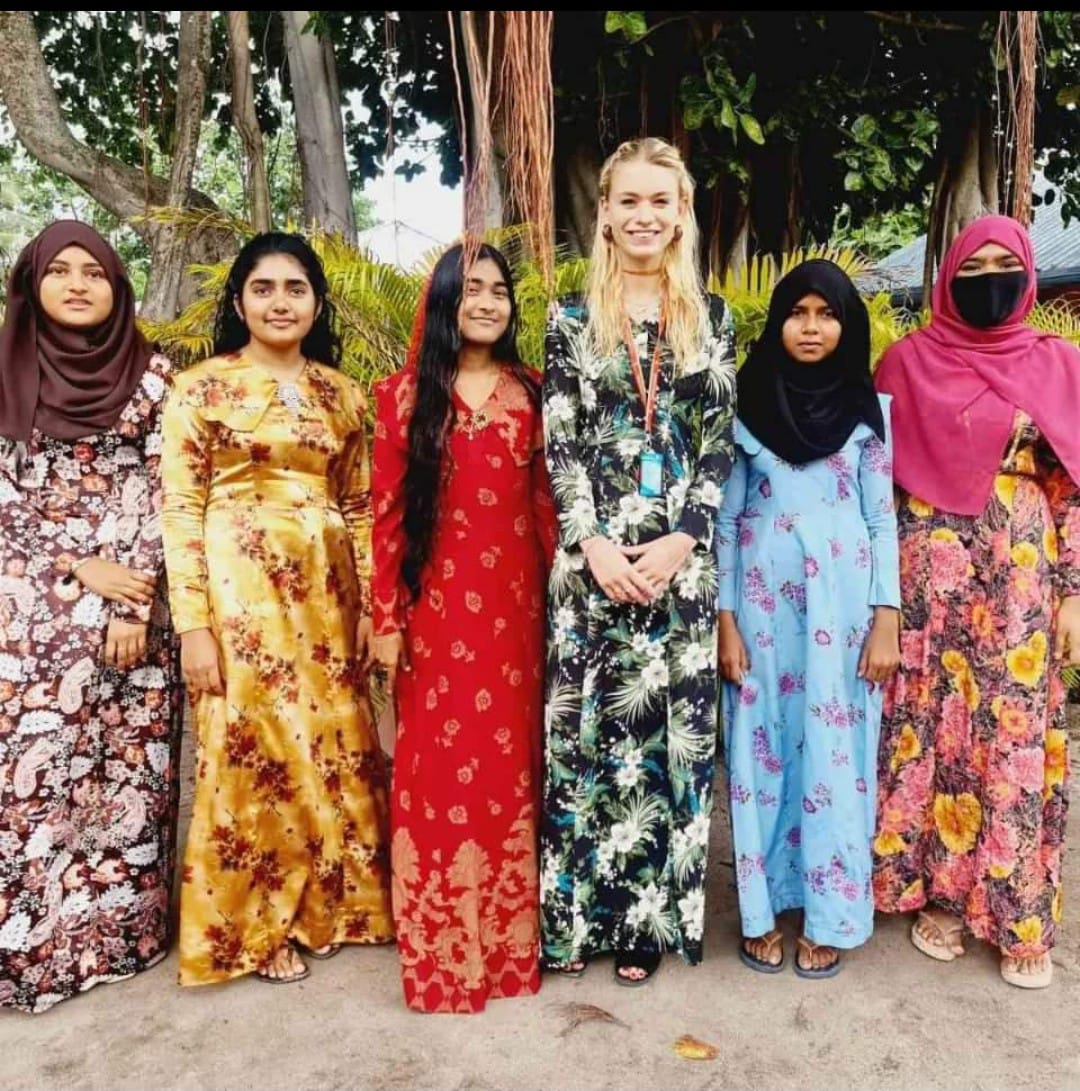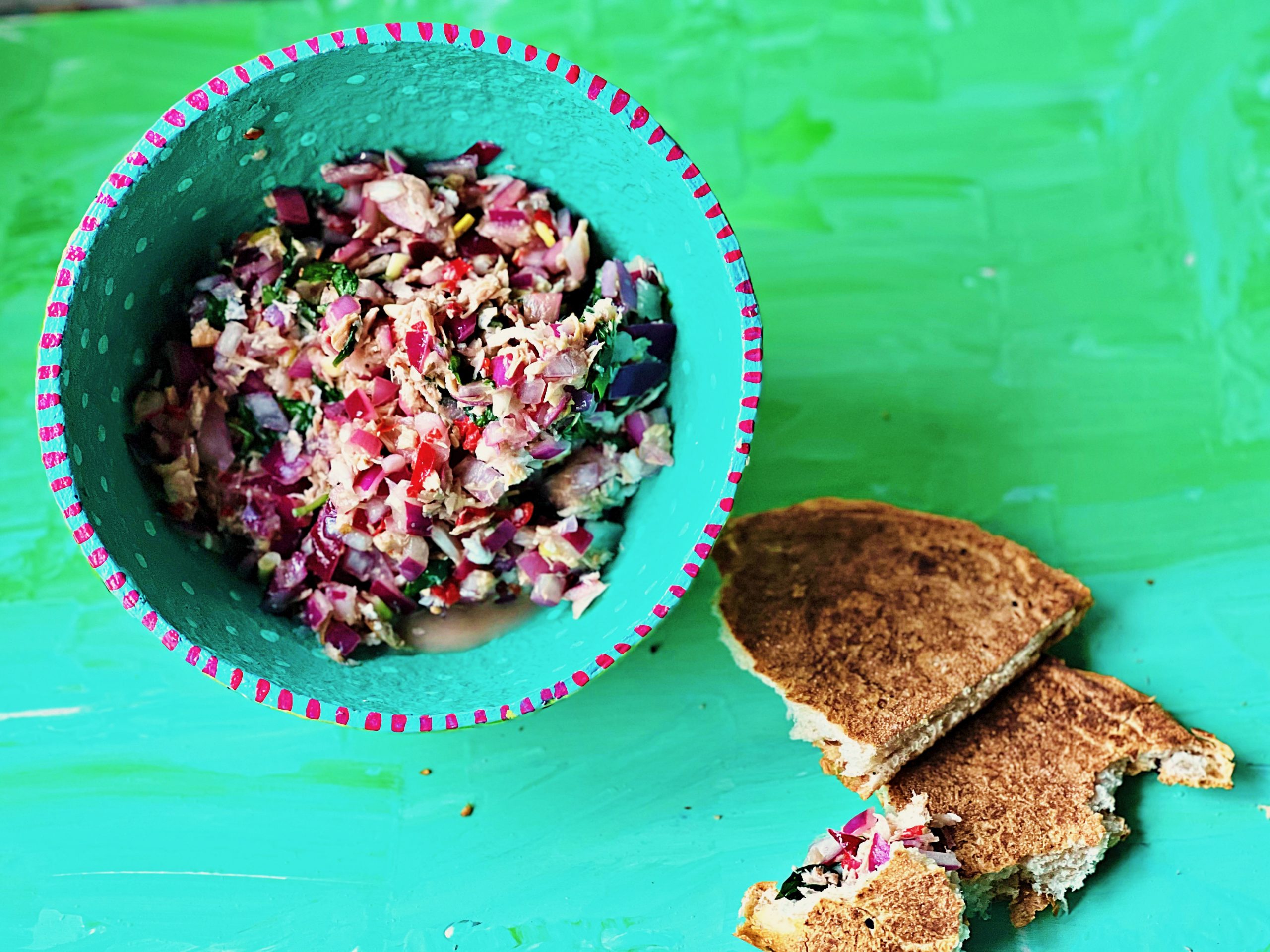I commissioned a friend, Mary Wedgwood, to write this piece after she had spent a year in the Maldives teaching. I found her stories fascinating.

The Maldives. Tropical paradise, filled with lavish resorts frequented by footballers, actors and influencers, on honeymoons or photoshoots. The most expensive holiday destination on earth; synonymous with luxury.
Not the Maldives I know. In August 2022, I moved to the Maldives to teach English in a small school, as part of a government initiative to improve children’s English literacy. The stark reality is that, due to the Maldives’ low-lying nature, by 2050 it is estimated that 80% of its land will be underwater, because of rising sea levels. Therefore, its future generations need to be equipped with English that will serve them well should they need to seek job opportunities abroad.
I discovered on arrival that due to an administrative mix-up at their Ministry of Education, I was expected to teach mathematics. Chinese whispers seem to have flown around from the Ministry to the island to which I was posted, Maakurathu, because when I landed, I was enthusiastically greeted by the headteacher of the school who said: “We are so excited to have a UK maths expert joining us.” I was so taken aback I did not correct him, and had to teach grades 6, 7 and 8 maths initially. I barely know my times tables. I had to teach myself maths the night before teaching it, then could not answer any spontaneous questions from the kids during class. They then asked me to take on the higher tier grade 10 students doing GCSE advanced maths, at which point I had to come clean because my total mathematical ignorance at that point would have affected the grade 10s’ future. The Ministry agreed to look for a job vacancy elsewhere and after three months of waking up terrified of the algebraic fractions ahead I was transferred to the island of Dhidhdhoo where an English teacher role had become available.
Incidentally, it had become available because a teacher had been sacked following parental complaints that the English teacher’s degree was in Geography, not English. The highly qualified teacher was from India and her English was perfect – far better than Maldivian teachers’ English. I, on the other hand, am not a trained teacher, and my degree was in politics. I was amazed at the lack of rights for workers, later witnessing a colleague sacked by email after nine years service, without a hearing or any dialogue at all, because the children had complained to their parents that she smelled.

Yet the English level I found when I arrived was impressive thanks to the local kids’ fondness for YouTube and video games. Despite the tiny and remote nature of each of the approximately 200 inhabited islands that form the Maldives, the government has invested in technological infrastructure which enables its population to virtually access the distant wider world.
The local Maldivian islands are a far cry from the luxury resorts we picture when we think of the Maldives. Houses are built haphazardly with rusting corrugated iron and plastic sheeting, and streets are not paved, meaning my two-minute commute to work at the school was along beautiful white sandy roads. Picturesque palm trees abound – one must be vigilant about falling coconuts – and every part of the tree is used, from drinking the coconut water, to weaving the trunk’s fur together for making coir rope for baskets, to using the trunk for boat repairs. There is a small shop and a children’s play area on each island, and a harbour which is a hub of activity, the country being heavily import-dependent as it is.

A key ingredient which does not need importing, however, is tuna. I feared getting mercury poisoning due to the sheer quantity I consumed. The seas are full of it, and the majority of men on the islands are fishermen. This is used in local people’s meals, but also sold to the luxury resorts at quite a mark-up, meaning local families’ lives are comfortable. Although the resorts are metaphorically distant from Maldivians – even on rare day visits, they are forbidden from drinking alcohol served there due to the country’s strict dry laws – the trickle-down economic impact can be felt. Tourism accounts for one third of the Maldives’ economy, which is one of the reasons behind its growth from being one of the world’s 20 poorest countries in the 1980s to a successful middle-income country.
Naturally, adapting to such a different culture took some adjustment. I had no idea before arrival that the Maldives is a strict Muslim country.
In my first few weeks I was reprimanded for hanging out at the beach with a friendly young man who taught me how to snorkel. My boss, the headteacher of the school, instructed me to have no further contact with the man, or any other men.
I was given a whole new wardrobe because my clothes were ‘too tight’, and warned to wear leggings underneath dresses because the rumour at school was that I am ‘knickerless’. I was told not to come to work with wet hair because it alludes to me showering.
I had to re-write lessons that mentioned dogs, because they are considered haram and evil. Looking at colleagues’ science textbooks, I noticed that everything was attributed to God – for example after an explanation and diagram of photosynthesis would come the standard summary “we must thank Allah for inventing the complex process of photosynthesis!”.

My students would implore me to convert, telling me that I will burn in hell otherwise, which is hotter than the Sahara Desert. They did not mean it unkindly, and instead just seemed sad for me that as an atheist this is my certain fate. They would enjoy pointing at trees or birds outside the classroom window and asking “who do you think made that then Miss?”, then laughing triumphantly as though nothing could be more obvious than this as proof of God’s existence.
I was struck by their devotion to religion, which British children would scoff at. I came to admire this somewhat, because it gave them a cause to believe in. It also helped us adults with discipline; one day the naughtiest children were desperately running to teachers in whose lessons they behaved the worst (I was one), apologising for their recent misdeeds. Mystified, I asked my headteacher what was going on, and he explained that an elder on the island had had a dream that another tsunami was coming, so the children wanted to make amends before meeting their maker.
Despite the strict rules regulating women’s lives, I found everybody to be friendly and keen to help me assimilate. There is a wonderful sense of community, with regular street parties to honour a boy’s circumcision (they’d be four or five years old and a little shell-shocked) or the anniversary of a death of a relative. They enjoy playing silly games involving passing plates of flour backwards over their heads without spillage, or eating a bun attached to a swinging string without using hands.
My landlady was an elderly woman who spoke no English – and I’m ashamed to say I learnt little Dhivehi – so we communicated through comical mime. Although cockroaches scuttled merrily across her kitchen surfaces, her home was pleasant, and she had mod-cons including air conditioning, a washing machine and an enormous, perpetually switched on TV (often simply showing the live stream of people conducting their Hajj in Mecca).
She had experienced recent tragedy when her 35-year-old son dropped dead mid-volleyball match. This incident was a stark reminder of how isolated these people are in terms of access to medical care, as I wondered whether he could have been saved with better care. His many volleyball trophies adorned her home, which was touching. She showed me old family photos and I was surprised to see her unveiled and wearing knee-length dresses, looking unrecognisable. A relative translated for her that, prior to the 2004 tsunami, life was more relaxed, for instance the hijab was actually banned for female newsreaders. Then iron-fisted clerics from Pakistan and Afghanistan then arrived to preach that God sent the tsunami because He was angry that Maldivians were not devout enough, and the fervent devotion to Islam began in earnest.
That’s not to say women had no fun – I would see fully covered women in niqabs playing volleyball on a daily basis! But when jogging around the island for the first time, a group of panicked women clustered around asking me what ‘emergency’ I must be running for, and directing me to the island doctor. This meant when I ran the Maldives half marathon later in the year in the capital island Malé, I was crowned the fastest woman in the Maldives – fastest of seven!
My landlady made me my favourite Maldivian dish Mas Huni, a staple of the diet there, every day and it is easy to make, nutritious and delicious. You’ll need smoked tuna ideally, which can be bought fresh at Forman and Field or tinned from The Tinned Fish Market and Portugal Vineyards. You can also use normal, but good quality tinned tuna.
Local life on Maldivian islands is simple, peaceful and beautiful. These small islands only became open to foreign visitors in 2012, so if you happen to find yourself in that corner of Asia, I highly recommend a speedboat trip to one – perhaps Dhigurah just south of the capital island Malé – to meet the welcoming local people, and try Mas Huni in its homeland.


Mas Huni
Ingredients
- 200 g smoked tuna cut into chunks or a tin of smoked tuna
- 1 fresh coconut, de-shelled, flesh peeled and grated
- 1 red onion, sliced
- 1 chilli pepper, diced
- 2 limes, juice of
- handful basil leaves, chopped
- salt and pepper to taste
Instructions
- Combine everything in a bowl, squeezing a generous amount of lemon juice all over.
- Season with salt and pepper.
- Warm up some chapatti or roshi (Maldivian flat bread, like Indian roti) to serve with it.





I’m certainly far from rich but wanted to visit
the Maldives, so managed to get cheap Wizz
flights there, via Budapest and Abu Dhabi. Total cost was about £240 although I also booked a cheap place to stay to break up the outward and inward journey. B & B was about £25 per night on a perfectly decent island (you have a lot of choices) and , yes, I did eat a lot of tuna.
Admittedly, 25 hours return on the World’s worst airline requires a lot of patience and waiting for connections at airports can be boring. But £500 for a really great holiday
has to be worth a few sacrifices.
Thanks David, that’s great info. I must actually go myself.
Amazing work! Big love!